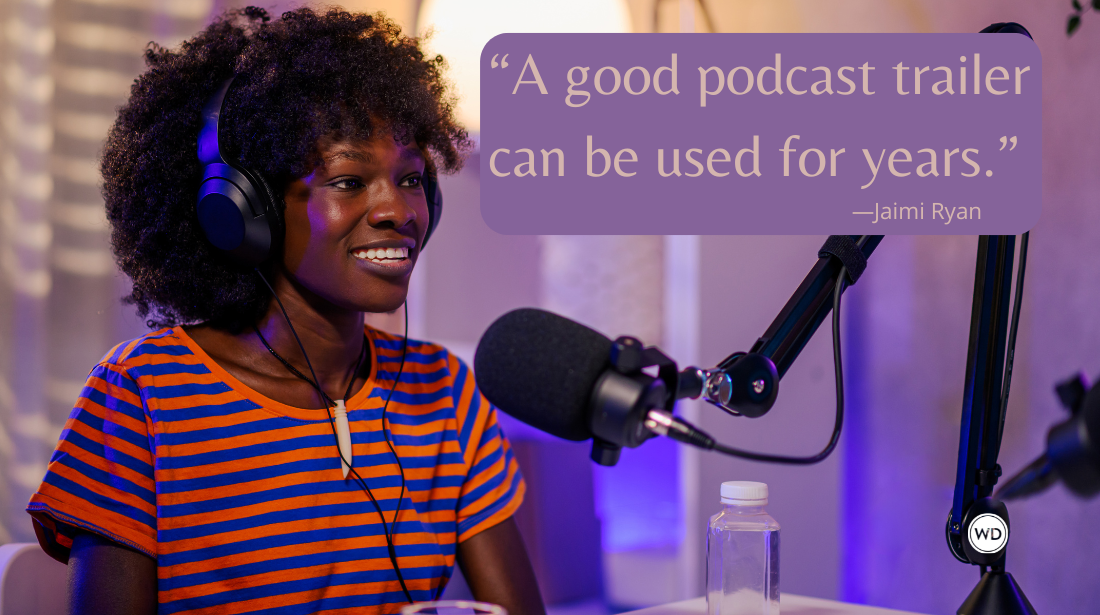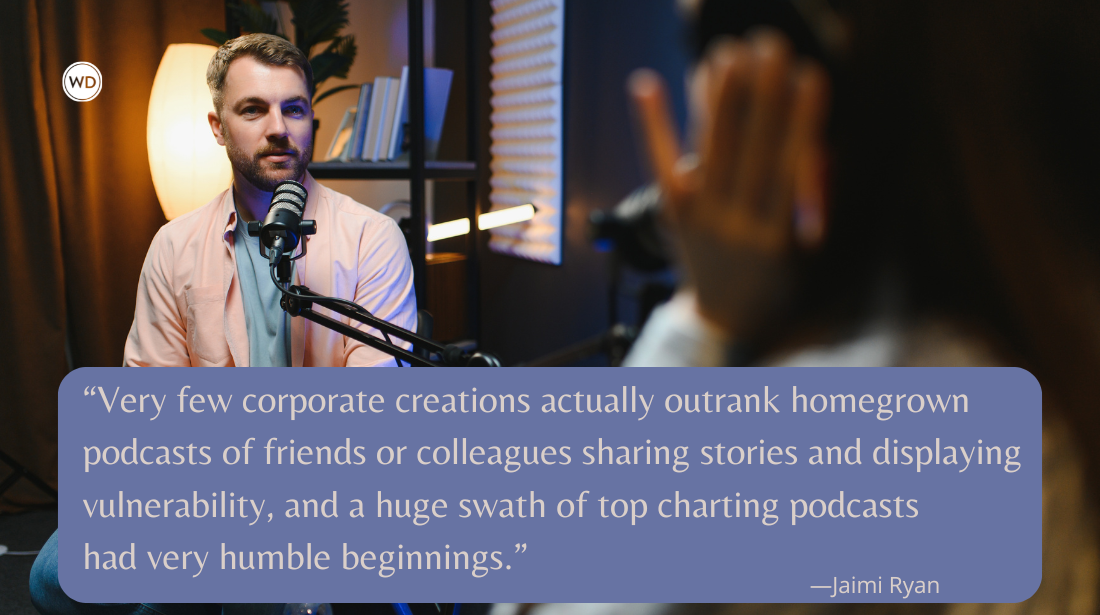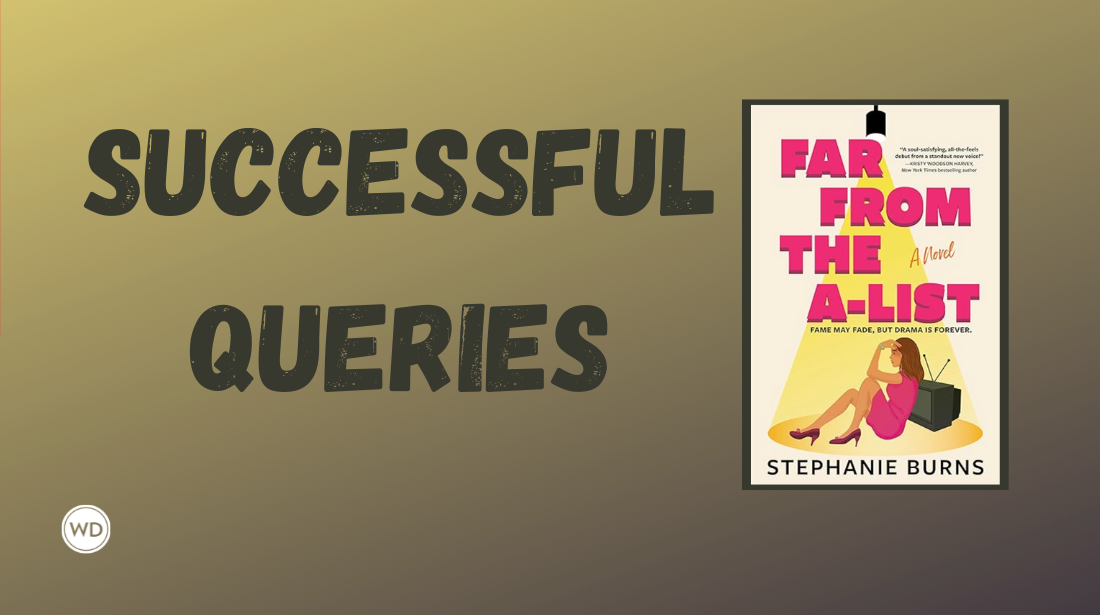There Are 2 Types of Writers: Which Are You? (The Other Side of the Slush Pile)
Today’s guest post is from the insightful Jim Adams (Migdalin.com). I met Jim at the June WD Editors’ Intensive. He also contributed this piece about the benefit of hiring a…
Today's guest post is from the insightful Jim Adams (Migdalin.com). I met Jim at the June WD Editors' Intensive. He also contributed this piece about the benefit of hiring a professional editor.
The Fire in Fiction, by Donald Maass, informs us that there are two types of writers:
- One type writes in order to write.
- The other writes in order to be published, obtain fame, and receive impressively large royalty checks.
As with any dichotomy, this one has its problems, but recently I gained a better understanding of why Mr. Maass would come up with such a dichotomy in the first place.
Recently, I got a chance to sit on the Other Side of the Slush Pile.
Most writers' workshops qualify, in some sense, as slush piles, but the online community Authonomy, run by HarperCollins, takes things one step further. Authonomy lets authors post their books, or significant portions thereof, and then lets them vote for each other's work. Books get rated based on how many votes they have, and books at the top of the ratings get looked at by one or more purchasing editors at HarperCollins.
While you can only vote for five books at a time, you can comment on as many books as you like. Having posted a goodish portion of my own book, I set about providing comments to several individuals who had befriended me or who had suggested a bout of mutual mastication, so long as I went first …
So, I began to read, and I began to critique.
My efforts were unappreciated. I had failed, you see, to follow the prevailing custom, which was to write a critique thusly:
This book was so good, I was tempted to cut off my fingers, because compared to you, I don't deserve to write even a grocery list. Excuse me while I go change my underthings: that's how much your words moved me! I especially liked how you capitalized the first word in every sentence. Masterful!!
Let me reiterate that Authonomy is a slush pile. While I haven't been part of the community for long, the few books I've read and commented on so far are (in my inexpert opinion) not ready for publication, and I don't mean they're in need of a thorough proofreading. The problems I've seen have been fairly major. But, using Mr. Maass's dichotomy, most people on Authonomy appear to be Type 2 writers. They're looking for validation, not criticism. They're looking for publication and a paycheck, not insight into how they might improve their work.
Naturally, it's difficult to accept criticism on a book that took you a year or more to write. And who wants to hear that a book they believe is finished still has significant room for improvement? Move a few commas around? Be happy to! Revise a few sentences for clarity? Well, if you insist. Rewrite the book so it begins on page one, ends at a meaningful destination, and accomplishes something at regular intervals along the way? How dare you!
Of course, tact plays an important part in writing any critique, but having learned my critiquing skills at critters.org, I write tactful critiques as second nature. After all, my book is out there too, and if it's to be savaged, I prefer to have it savaged without unnecessary invective or rancor. But tactful or not, I get the impression that most of the writers on Authonomy aren't interested in meaningful feedback.
To be fair, another part of the equation here is: Who to believe?
Do you believe the fifty people who agree with you that, "Oh my God, this is going to be bigger than Harry Potter," or do you believe the one lone voice of dissent? In all likelihood, the voice of dissent is just a psycho-killer wannabe who fills his time between stalkings by pulling the wings off budding novelists. Your best bet is to quote the immortal Buzz Lightyear ("You are a sad, strange little man, and you have my pity."), and go on about your business.
Still, whatever the psychology, the end result is the same. Individuals stroke each other and promote books that are half-baked.
It's possible that over-eager writers are outnumbered by those who suffer from the opposite problem: the curse of endless revision. We can't know for sure, but it's worth mentioning. Balance in all things. Sooner or later you have to pull the cake out of the oven, put the icing on it, and let people cut themselves a slice. If someone then tells you the cake could have stayed in the oven just a bit longer, well ... who knows. Maybe they have a point, or maybe next time they don't get invited to tea.
Jane Friedman is a full-time entrepreneur (since 2014) and has 20 years of experience in the publishing industry. She is the co-founder of The Hot Sheet, the essential publishing industry newsletter for authors, and is the former publisher of Writer’s Digest. In addition to being a columnist with Publishers Weekly and a professor with The Great Courses, Jane maintains an award-winning blog for writers at JaneFriedman.com. Jane’s newest book is The Business of Being a Writer (University of Chicago Press, 2018).









